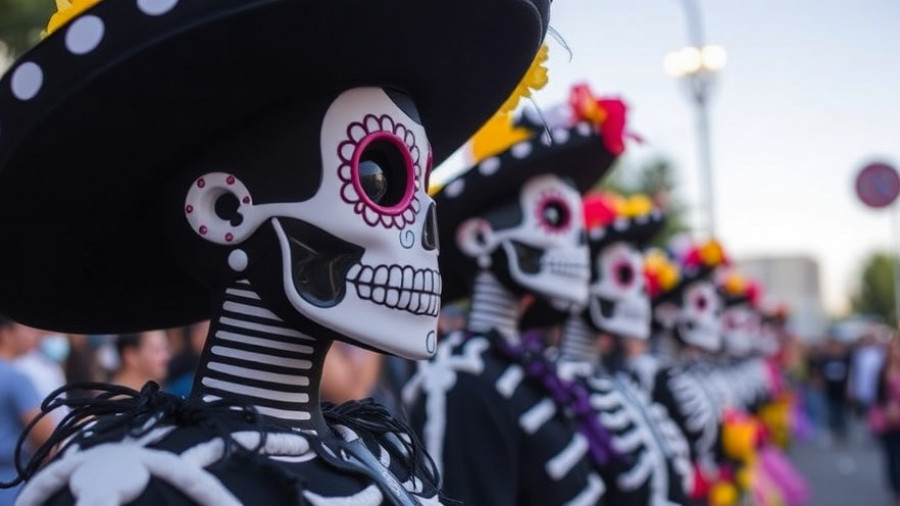
A Cultural Celebration Halted: Understanding the Impact of Immigration Fears
The Día de los Muertos festival, a revered celebration that honors deceased loved ones in the Latinx community, is once again absent from the streets of San Jose. Organizers announced the cancellation due to low attendance over the past few years and a reduced pool of sponsors, combined with heightened fears regarding immigration enforcement. The situation underlines the complex intersection of cultural expression and social anxiety that characterizes current socio-political dynamics in the U.S.
A Shift in Community Sentiment
Jessica Paz-Cedillos, CEO of the School of Arts and Culture, expressed sorrow for community members and organizations affected by the event's cancellation. "There is a lot of information that we may not know, and they had to make a difficult decision," she remarked. This speaks to a broader sentiment in communities that traditionally celebrate Día de los Muertos, where uncertainty about immigration enforcement creates an atmosphere of fear and diminishes participation in cultural festivities.
Adapting to New Realities: Smaller Celebrations Continue
While larger gatherings are shelved, smaller celebrations remain in effect, ensuring that the vibrant traditions of Día de los Muertos, such as altars and performances, persist albeit on a reduced scale. Such initiatives, championed by local businesses and cultural organizations, strive to keep the spirit of the event alive while navigating the challenges posed by a fraught political landscape. This adaptation illustrates a tenacity that exists within the community, emphasizing the importance of cultural heritage, even in the face of obstacles.
Economic Factors Contributing to a Quieter Year
Organizers have pointed out financial realities, saying that sponsorship has noticeably declined, a trend affecting not just cultural festivals but other community events as well. The implications of these economic pressures can be seen in the recent closure of significant sponsors, such as the foreclosure of a prominent hotel that traditionally backed the Día de los Muertos festival. This growing financial unease contributes to the festival’s cancellation and sets a troubling precedent for future cultural events.
What This Means for the Future of Día de los Muertos
The absence of large-scale celebrations raises questions about the sustainability of such traditions in modern America. The Latino community in San Jose has seen the Día de los Muertos festival become a symbol of heritage, and its reduction may signify broader challenges in maintaining this connection as socio-political factors shift. As these events scale down, it’s crucial to find ways to adapt and innovate while holding onto the roots of cultural expression that transcend economic and political obstacles.
 Add Row
Add Row  Add
Add 



Write A Comment